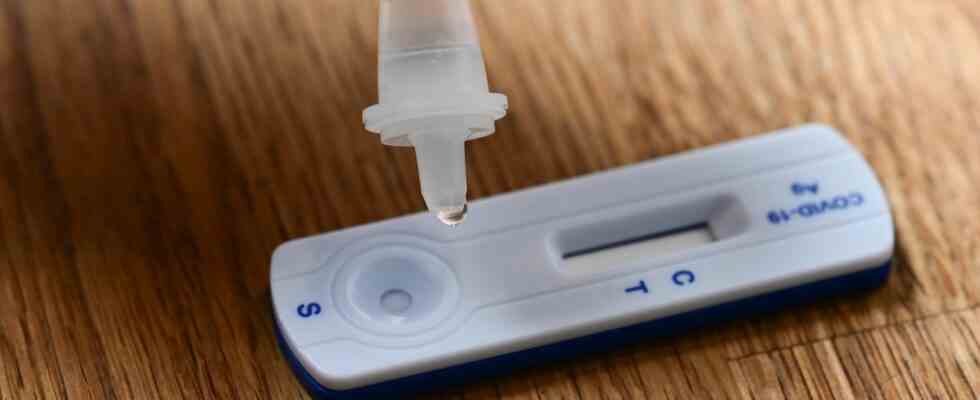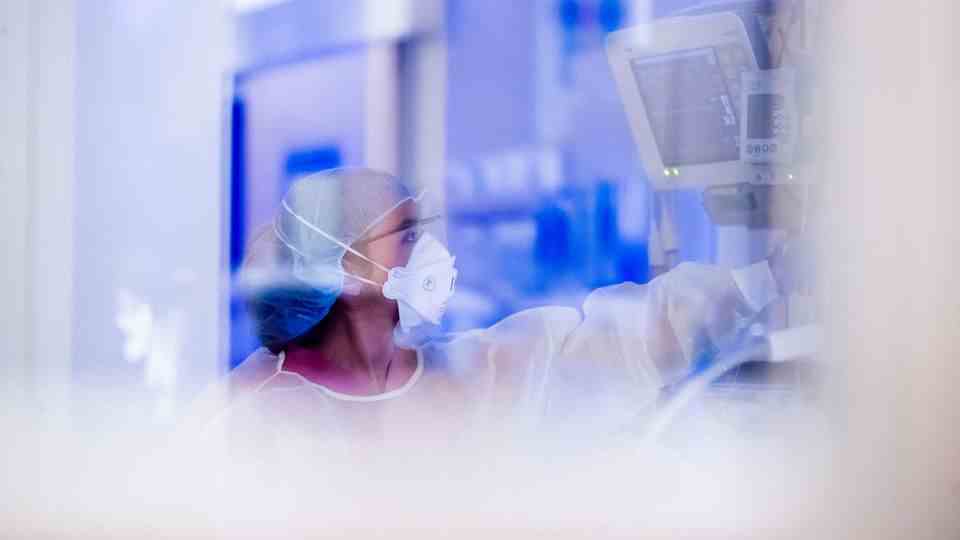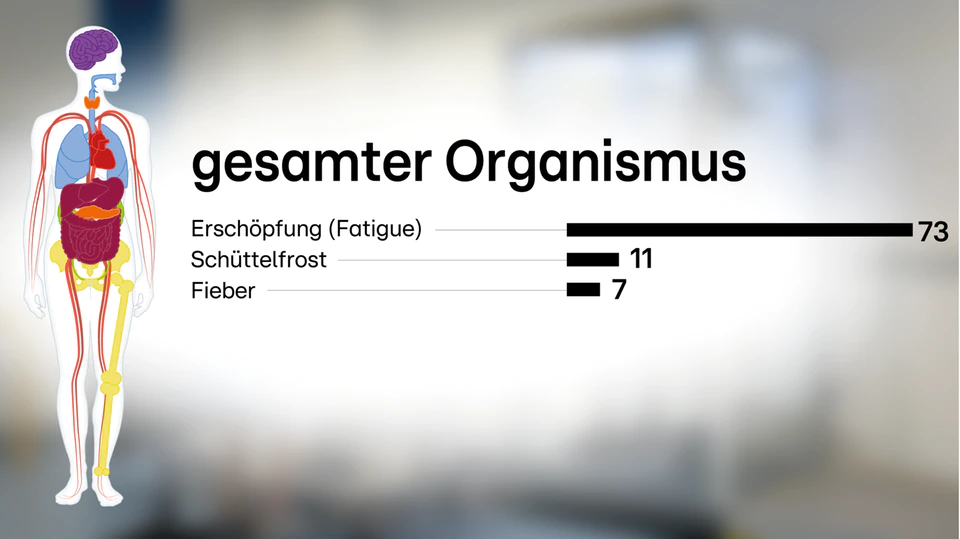studies
How long people infected with omicron are contagious and what it means for isolation
How long people who have contracted omicron are contagious can vary.
© Bernd Weißbrod / DPA
People who have been infected with the corona virus currently have to be isolated in Germany for five days. But anyone who becomes infected with omicron could be contagious for much longer.
In the course of the pandemic, not only the coronavirus has changed, but also the quarantine rules for people who have contracted Covid-19. In Germany, people had to isolate themselves for 14 days at the beginning of the pandemic. They became ten days with the option to leave your own four walls after seven days with a negative test. Today is only five days. But are people who become infected with the omicron variant really only contagious for a short time?
The US health authority CDC justified the step to shorten the isolation period to five days in December 2021 by saying that this decision was based on findings about diseases caused by omicron. Because: Most people are contagious one to two days before the onset of symptoms and two to three days after the onset of symptoms.
Risk of infection with omicron
The Robert Koch Institute also informs that infected people are most contagious when they do not yet know about their infection – i.e. one to two days before fever, cough or runny nose starts. Within ten days of the onset of symptoms, the risk of infection decreases significantly.
Still contagious or no longer contagious – that sounds like a simple arithmetic task at first. But it’s more complicated. The variant, the vaccination status, the immunity from infections that have been overcome can influence how quickly the virus disappears from the body – and that ultimately decides how long a person is contagious, said Benjamin Meyer, a virologist at the University of Geneva in Switzerland Journal “Nature”. An example: If a person with an immune deficiency is seriously ill with Covid-19, they can be contagious for much longer than five, six or eight days.
Covid-19: Some people infected with Omicron are still contagious for nine days
However, two current studies provide at least indications. Researchers led by Julie Bouceau from the Ragon Institute in Cambridge have analyzed when corona viruses are no longer able to reproduce. To do this, they examined data from 66 subjects who had been infected with the coronavirus between July 2021 and January 2022. 34 participants were infected with omicron and 34 with delta. The researchers examined how much time elapsed between the first positive PCR test and the negative PCR test. The result: The values were between three and five days for those infected with Delta and between three and nine days for those infected with Omicron. This means that some of the subjects in the Omikron group are still contagious less than nine days after the positive PCR test. So four days longer than the current isolation requirement in Germany.
“The facts about how long people are contagious haven’t really changed,” says Amy Barczak, an infectious disease specialist at Massachusetts General Hospital in Boston who was involved in the study. “There is no data to support five days or less than 10 days of isolation,” she told Nature.
Two points limit the significance of the study: there is a very small number of subjects and PCR tests are very sensitive. Scientists assume that they will still deliver a positive result even if someone is no longer infectious.
Better to wear a mask after isolation
In a study, scientists from Massachusetts examined the infectivity of 40 subjects. The researchers took samples for rapid tests from people who had been infected with omicron between January 5 and February 11, 2022. 36 participants were vaccinated three times and none of the test subjects had to be treated in hospital. From day six after the first positive corona test, the participants were tested daily. The result: the rapid test was still positive on day six for 75 percent of the test persons.
The researchers derive the following recommendation from their results: Anyone who has been infected with Covid-19 should definitely wear a mask indoors in public for up to ten days after the end of the five-day isolation. The researchers also make this recommendation for people whose rapid tests are already negative on day five.
The reason: A quick test only works from a certain viral load. Which means that even a person with a negative rapid test could potentially still be contagious. But: “Antigenic tests may be better able than PCR tests to determine infectivity because their threshold for detecting Covid-19 more closely matches a transmissible amount of virus,” said Charles Bailey, medical director for infection prevention at Providence and Mission Hospital Providence St. Joseph Hospital in Orange County, California across from “Healthline”.
Even if both studies have only limited significance due to their small number of subjects, the results make it clear that it is important to test yourself voluntarily even after five days of isolation and, if symptoms persist and/or a positive rapid test, it is better to do a few more days to stay at home voluntarily.
Sources: Nature, Study New England Journals of Medicinepstudy in Jama,healthline, RKI




